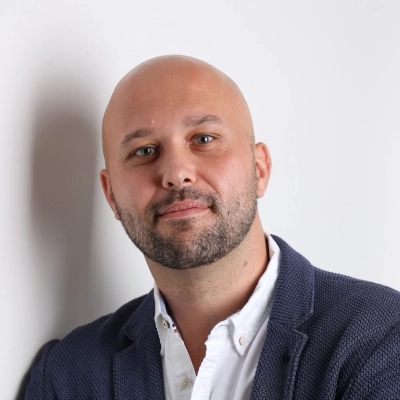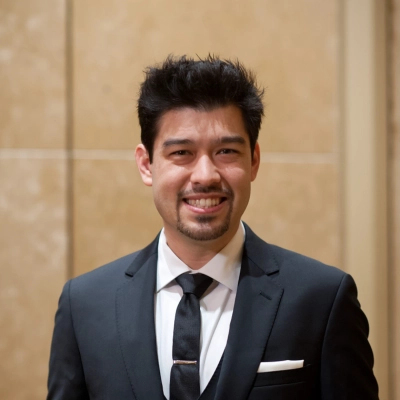How to Protect Your Legal Liability as a Consultant
Navigating the complex landscape of legal liability is a crucial skill for consultants in today's business world. This comprehensive guide draws on insights from industry experts to provide practical strategies for protecting yourself and your business. From setting clear boundaries to managing client relationships, learn essential tips to safeguard your consulting practice against potential legal pitfalls.
- Treat Setbacks as Valuable Data Points
- Embrace Continuous Learning and Client Impact
- Balance Professional Identity with Personal Growth
- Repurpose Ideas to Spark New Momentum
- Focus on Progress and Useful Outcomes
- Leverage Character Strengths to Overcome Challenges
- Set Boundaries to Maintain Creativity
- Live Life Fully to Fuel Career Success
- Find Motivation in Startup Transformation Stories
- Navigate Client Relationships with Professionalism
Treat Setbacks as Valuable Data Points
Marketing is unpredictable. Campaigns miss their targets. Budgets get cut. Priorities shift overnight. That's just the nature of the environment, so I don't take any of it personally. When something underperforms, it's not a failure—it's feedback. Every result, good or bad, is another data point. This mindset keeps things grounded.
It's hard to burn out when everything is treated like a test.
What keeps the work interesting is watching strategy beat spending. Because when a small-budget campaign outperforms a bigger one, it's usually because the message is sharper or the timing's better. That's the kind of proof that makes the job worth doing.
The impact is real and fast. Tweak a headline. Adjust the flow. The numbers move within days. This kind of immediate feedback makes it easy to stay engaged.
Motivation doesn't come from trends or flashy creative. It comes from figuring out what actually worked. A subject line lifts open rates. A retargeting sequence drops CAC. A layout change boosts conversions by 20 percent.
So it's about chasing clarity.
Marketing isn't about staying inspired. It's about staying curious. Because the more questions something raises, the more valuable it becomes. That's what keeps the work from going stale.

Embrace Continuous Learning and Client Impact
What keeps me motivated as a marketing consultant, even during tough times, is a combination of curiosity, creativity, and impact. I've been in this industry long enough to know that setbacks are part of the process; campaigns don't always land, algorithms shift, and clients change direction. But every challenge is an opportunity to learn, adapt, and improve.
What really drives me is the creative problem-solving side of marketing. I love digging into a brand's story, understanding what makes their audience tick, and finding smart ways to connect the two. When you see your strategy come to life and genuinely move the needle for a business, it's incredibly rewarding.
Staying inspired also comes from constantly learning. Marketing never stands still, and that suits me. There's always a new trend, tool, or insight to explore, but above all, it's the people. Working closely with clients, helping them grow, and seeing their pride in their brand, that's what keeps me passionate about what I do.

Balance Professional Identity with Personal Growth
I stay motivated by reminding myself that I genuinely enjoy what I do—and I'm good at it. That confidence helps, especially during tough phases. I also try not to tie my identity too tightly to being a marketing consultant; it's something I do well, but it's not the whole of who I am. Setbacks are part of the game, and by keeping some distance, it's easier to see them for what they are: temporary. Just as bad phases come, good ones will follow too.

Repurpose Ideas to Spark New Momentum
Honestly, I treat marketing like cooking with leftovers. When a campaign flops or a client goes dark, I don't chase inspiration—I open the fridge and ask, "What's still good here?" I'll dig into unused insights, repurpose a scrapped idea, or revisit an old win to see what still has flavor.
That small act of resourcefulness almost always sparks momentum.
What keeps me passionate? Seeing overlooked angles come to life. I run a speaker bureau, so helping a speaker land a gig because we connected their quirky college thesis to a corporate DEI theme—that's the kind of win that never gets old.

Focus on Progress and Useful Outcomes
Momentum comes from progress—seeing a small test outperform expectations or helping a client clarify their message fuels the next move. When challenges hit, I zoom out: is the goal still right, or is the path just messy? Staying close to smart peers and learning from outside industries also helps. Passion stays intact when the work feels useful, not just busy.

Leverage Character Strengths to Overcome Challenges
What keeps me passionate about my work is the sense of agency I feel. I focus on gratitude a lot. I am able to do work I love (marketing), within an industry I love even more (health and wellness). Knowing this helps profoundly when navigating the harder times.
One of the most impactful tools for helping me overcome setbacks at work is the VIA Character Strengths test. The idea behind it is that each person has core strengths that they can utilize to improve their quality of life. To me, this involves my happiness level as well as performance.
For example, one of my strengths is curiosity. A tactic I use to apply this is to reframe challenges as learning opportunities, which makes them inherently more interesting to me and increases my motivation.
Learning how to use my strengths has been instrumental to my growth as a professional.

Set Boundaries to Maintain Creativity
For me, staying motivated as a marketing consultant comes down to avoiding burnout. I've learned the hard way that when I'm constantly "on" and neglecting everything else in my life, my work suffers as a result. Now I'm pretty strict about setting boundaries, ensuring I get enough sleep, and making time for things I enjoy outside of work. When I do that, I return to projects feeling sharp and creative, rather than drained.
What keeps me excited about this work is how quickly everything changes and the opportunity to help brands find their voice. There's something really satisfying about helping a company figure out how to tell their story in a way that actually connects with people. But I can only tap into that excitement when I'm not running on fumes.
The balance isn't just nice to have—it's actually what makes me better at my job. When I take time to step back, learn new things, and just live my life, I stay connected to why I got into marketing in the first place. And when things get tough or a campaign doesn't work out, I can bounce back faster because I haven't put all my eggs in the work basket.

Live Life Fully to Fuel Career Success
Challenges and setbacks are a part of life, and the whole point of being a consultant is fixing something that's broken, so look at it like a puzzle. Motivation is a muscle, so by pushing through tough times, you learn they can be overcome. As for inspiration, make sure to live life. Get outside, enjoy hobbies, take a break, read. Tunnel vision and drive are fantastic, but you can get burnt out (which could be why motivation is lacking). Work to live, don't live to work, and you'll find the balance you need to crush your career.

Find Motivation in Startup Transformation Stories
Honestly, what keeps me going is the sheer unpredictability of this journey—every founder, every pitch, every growth challenge brings a new puzzle to solve. I've had weeks where three startups imploded on their cap table strategy in a row, and you'd think it would knock the wind out of me. But instead, it fuels me. I remember one early-stage founder who came to Spectup completely deflated after being ghosted by investors post-demo day. We rebuilt his narrative, restructured his deck, and three months later, he raised a seed round. That kind of turnaround—that's what lights the fire.
Even when things go sideways, I remind myself that we're not just pushing pixels on slides—we're helping people chase what might be the most important thing they ever build. I still get that jolt of energy when I hear a pitch we've refined finally resonate. There's also something inherently motivating about seeing our team at Spectup step up when it matters—like watching someone completely rethink a strategy overnight because a client's round depends on it. You can't fake that kind of commitment. Challenges are part of the game, but the mission—to make good ideas investable—never really stops being exciting.

Navigate Client Relationships with Professionalism
What keeps me motivated is the intellectual challenge of solving complex marketing problems. However, I'll be honest, setbacks are part of the game.
The most frustrating moments come when you present data-driven recommendations with clear expected outcomes, only to have clients decline due to internal politics, operational hurdles, or entrenched practices. It's maddening when you know the solution will work but can't implement it.
I've learned to protect myself with strong contracts and detailed project briefs, because sometimes relationships do sour despite your best efforts. You have to accept it's their business and their decision, even when you disagree. I've actually ended client relationships when the dynamic becomes too stressful or unproductive. Being well paid isn't worth it if you feel like you're not adding value.
Interestingly, I once told a client I wanted to end our partnership because we constantly disagreed, only for them to respond: 'But we're working so well together!' It made me realize that sometimes my role is to surface challenges in a safe way that founders can't do internally with their teams.


